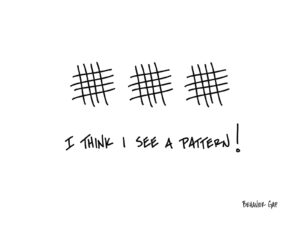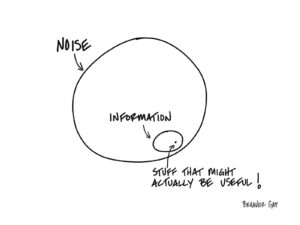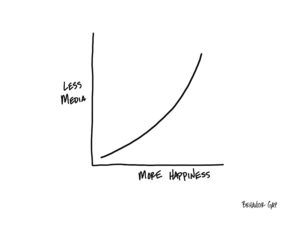Details Are Part of Our Difference
Embracing the Evidence at Anheuser-Busch – Mid 1980s
529 Best Practices
David Booth on How to Choose an Advisor
The One Minute Audio Clip You Need to Hear
Author: Carl Richards
The Only Investing Pattern That Matters Is Behavioral

That’s the thing about most patterns—they don’t predict the future; they just describe the past.
We’re so good at recognizing patterns that we often see them where they don’t even exist.
One of my favorite examples of this is some research done by David J. Leinweber at Caltech. Apparently, he figured out how to predict the stock market using just three variables:
1- Butter production in the United States and Bangladesh.
2- Sheep populations in the United States and Bangladesh.
3- Cheese production in the United States.
Amazing! Right?
It turns out these three variables predicted 99% of the stock market’s movement!
#TimeToStartAHedgeFund.
Just one problem: The joke’s on us.
While well-intentioned, the constant pursuit of patterns is one of the big behavioral mistakes we make time and again. We look for patterns. And guess what, they absolutely exist. Right up until you try to invest your money based on the pattern. Then *Poof!* They vanish into thin air.
We think if something happened a certain way in the past, then it will surely continue into the future. We start to believe—we desperately want to believe—that this pattern will have predictive value.
But it doesn’t. And that’s the thing about most patterns—they don’t predict the future, they just describe the past.
While some of these silly data mining tricks might be interesting to talk about, they don’t actually help us.
Turns out the only thing that does help when it comes to investing success is good behavior. Day in, day out, year after year.
Now that’s a pattern I can endorse.
-Carl Richards (friend of HIG)
Noise Info Wisdom

Do me a favor.
Try to remember a time when you read or heard something about money in the news, you acted on it, and then, with the benefit of hindsight, you were glad you did.
This could include any number of things: the latest IPO, bear markets, bull markets, mergers, market collapses.
Go ahead, I’ll wait. Close your eyes and think about it.
I’ve done this experiment hundreds of times around the world, and I’ve only had one person come up with a valid example. It was news about a change in the tax law.
That’s it.
Isn’t that interesting?
Think of all the financial pornography out there, think of all the dental offices that have CNBC playing in the background, think of the USA Today Money section. Almost all of it is noise. Almost none of it is actionable.
Sure, every once in a while, there is this little teeny tiny speck of information that might be useful. But you sure have to wade through a lot of garbage to get to it.
This leads to one obvious question: Why are we paying attention to the noise in the first place?
It might be fun, if you’re into that kind of thing. You know, like going to the circus. But most likely, it’s just a waste of time.
What if, instead of obsessing over the news, you used that time to work on that list you have…
You know, “The List.” The one that has all the really important things you actually want to do with your time.
Doesn’t that sound so much better than spending another hour watching the news?
Try a Media Fast

What if, for one whole week, you did a media fast?
You know… like, don’t consume any media at all. No screens, no devices, don’t even pick up a newspaper.
No. Media. Period.
Is one week too long? Then scratch that… make it three days. THREE DAYS. That’s just a long weekend. You can do it, I promise.
Give it a shot. And when you do, pay close attention to your emotional state. How does it make you feel? Happy? Sad? Energized? Exhausted? All of the above? None? Something else? I don’t know how it will make you feel… though I have my suspicions.
When I’ve done media fasts, I find myself feeling calm. Really calm. And to me, that feels good. Really good.
Which makes me wonder… if taking a media fast makes me feel so good, why do I ever go back to it at all?
Warning: You may find yourself asking that same question…

